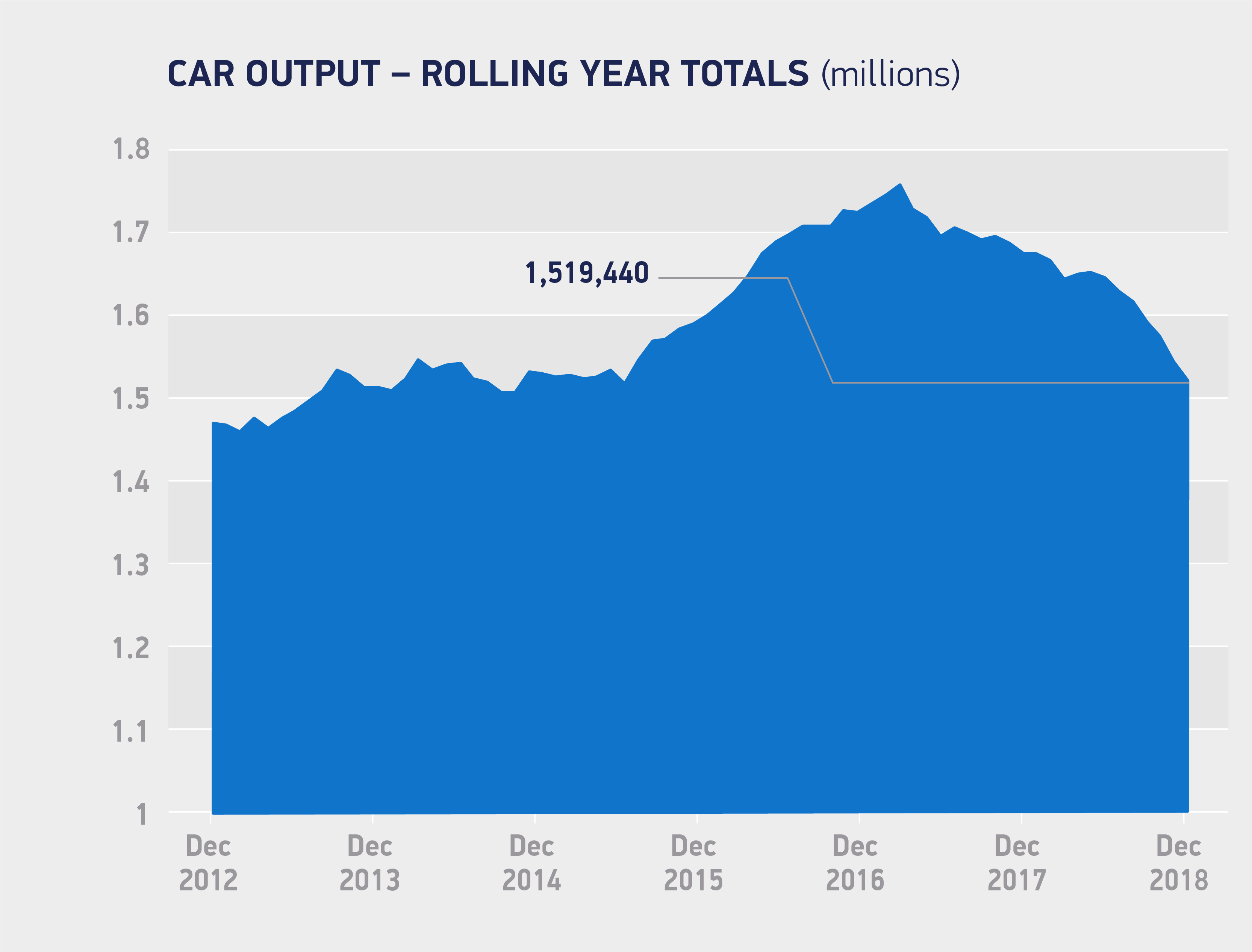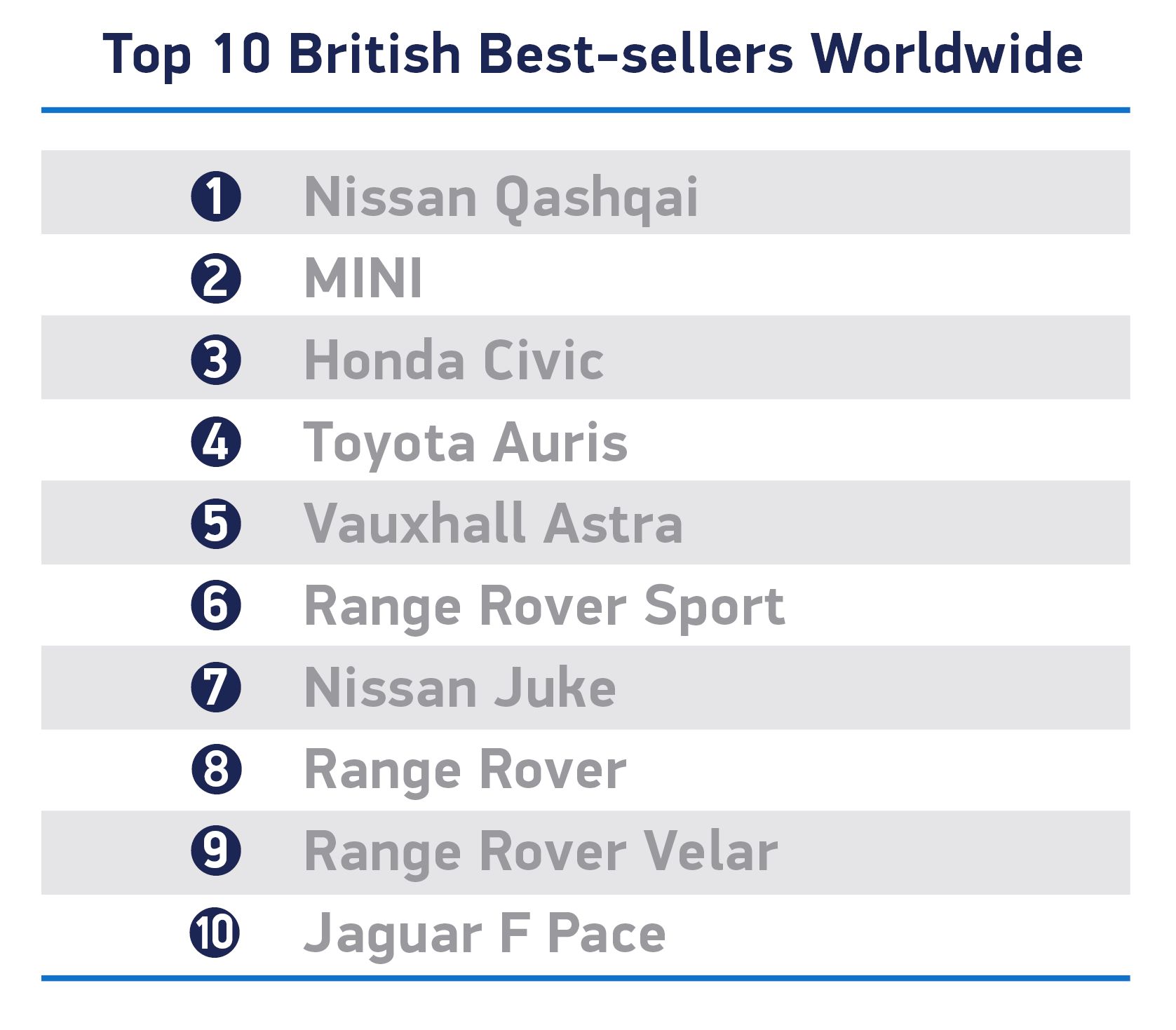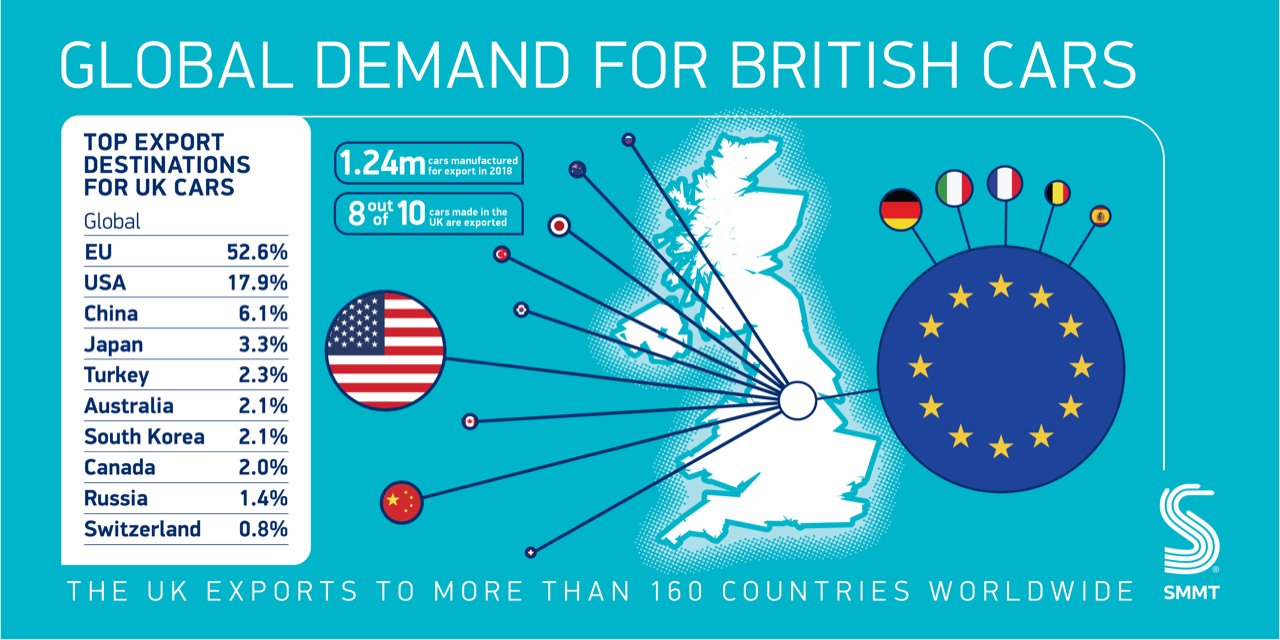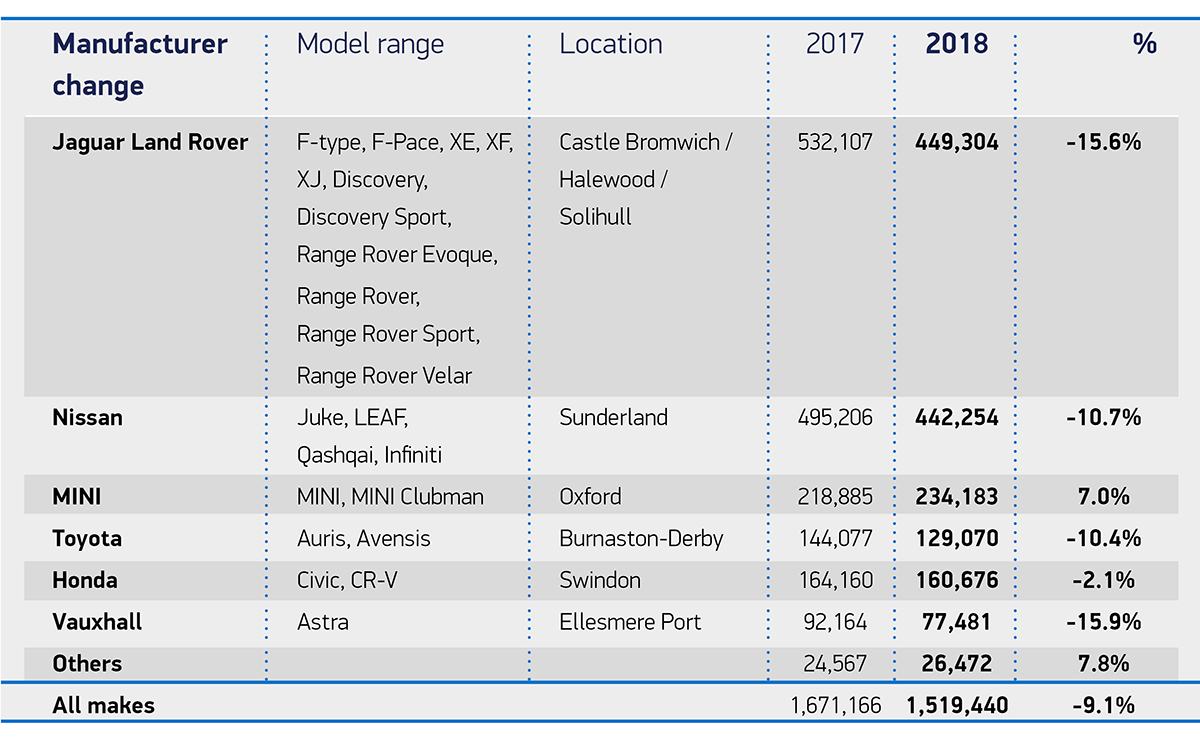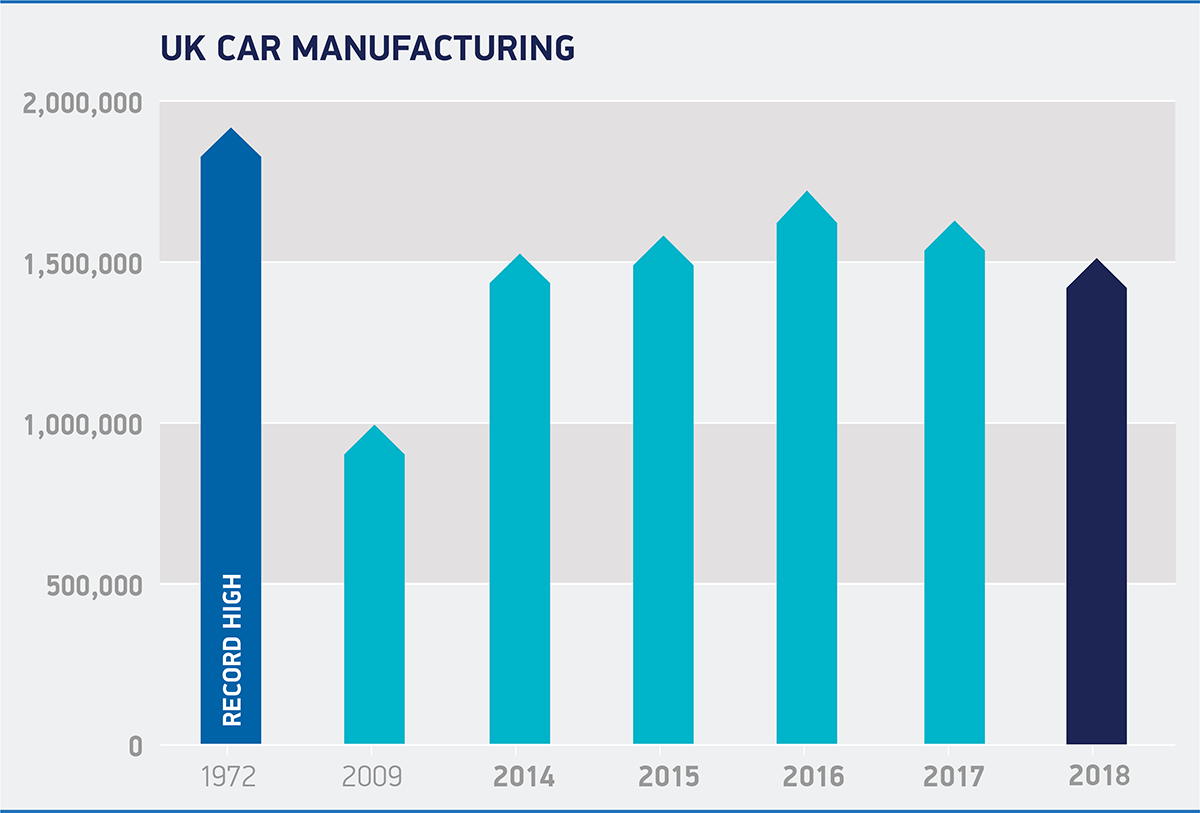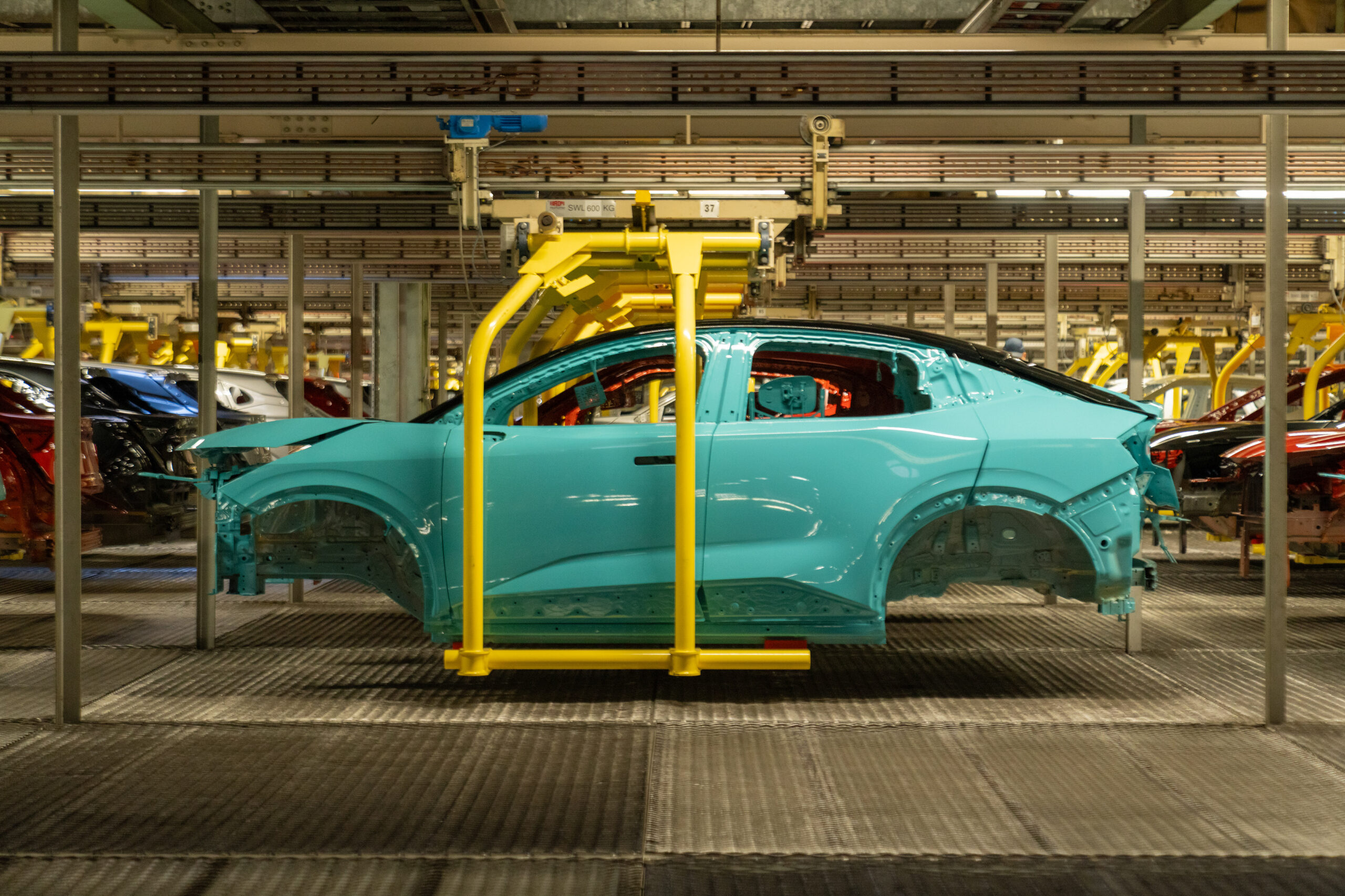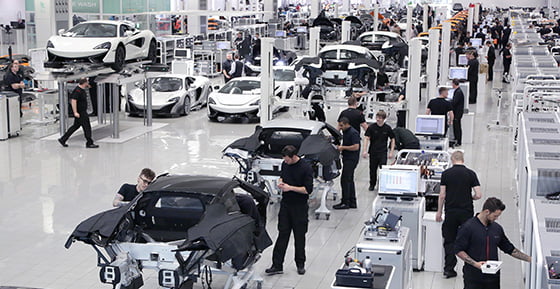
- UK car production falls -9.1% to 1.52 million units in 2018, a five year low for the sector.1
- Output for the UK and overseas markets down -16.3% and -7.3% respectively, with 8 in 10 cars exported.
- Brexit fears see fresh investment halved in 2018, as new calculations show two thirds of UK’s global car trade at risk from ‘no deal’.
UK automotive companies are today urging all politicians to do whatever it takes to avoid a ‘no deal’ Brexit as latest figures from the Society of Motor Manufacturers and Traders (SMMT) show British car production fell to its lowest level for five years in 2018. 1,519,440 new cars left UK factories, a decline of -9.1%, and the second consecutive annual fall as the sector faces multiple challenges.
The news comes as SMMT also reveals that fresh inward investment in the sector plummeted in the year – down almost half (-46.5%) on 2017 to just £588.6 million, amid fears over the UK’s future trading prospects with the EU and other key global markets after 29 March.2
In 2018, production for the UK fell -16.3% as regulatory changes and ongoing uncertainty over future diesel policy and taxation were exacerbated by declining consumer and business confidence. Exports were also down, with output for overseas markets dropping -7.3% as slowdowns in important European and Asian markets took effect. UK car exports to China slumped -24.5%, while EU demand fell by -9.6%, less steep than the decline at home, with registrations of British-built cars in the UK down -20.9% in the year. Overall, EU27 countries still accounted for the vast majority of UK exports (52.6%) – amounting to 650,628 cars.
Elsewhere, consumers responded to increased availability of several new premium models currently built only in the UK. Exports to the US grew +5.3%, cementing the country’s position as the UK’s second biggest customer after EU and underlining the risk to output if tariffs are imposed. Meanwhile, exports to Japan rose +26.0% and South Korea also showed growth (+23.5%).
Both countries, along with other key markets, including Canada and Turkey, are (or will imminently become) subject to preferential EU trade agreements, from which the UK benefits – together representing 15.7% of UK car exports.3 Time has almost run out to guarantee continuity of any of these arrangements before Brexit, and ‘no deal’ could therefore put more than two thirds of UK Automotive’s global trade under threat.
Mike Hawes, SMMT Chief Executive, said,
With fewer than 60 days before we leave the EU and the risk of crashing out without a deal looking increasingly real, UK Automotive is on red alert. Brexit uncertainty has already done enormous damage to output, investment and jobs.
Yet this is nothing compared with the permanent devastation caused by severing our frictionless trade links overnight, not just with the EU but with the many other global markets with which we currently trade freely.
Given the global headwinds, the challenges to the sector are immense. Brexit is the clear and present danger and, with thousands of jobs on the line, we urge all parties to do whatever it takes to save us from ‘no deal’.
The decline in UK car manufacturing in 2017 and 2018 follows seven years of unprecedented growth for the sector as it emerged from recession faster than any other major EU market, with output rising more than 70% in that time.4
Today, UK Automotive is globally respected. It is Britain’s biggest exporter in goods, and one of the country’s most important economic pillars, employing 186,000 people directly in vehicle and component factories and delivering an annual £20.2 billion direct to the Treasury.
Much of this success is due to our global competitiveness, drawn from economic and political stability, investment, a highly skilled workforce and beneficial trading conditions with our biggest markets. As a highly-integrated sector that has maximised the benefits of the European single market and customs union, a ‘no-deal’ Brexit is the most significant threat to the competitiveness of the UK automotive sector in a generation.
Check out the news coverage this story received:
- Deutsche Welle Brexit slashes car industry investment by nearly 50 percent
- BBC News Brexit: Car investment halves as industry hits ‘red alert’
- Financial Times UK car plant investment slumps as production falls to 5-year low
- The Times Car production in the UK falls by a tenth
- The Telegraph Plunge in car production puts industry on red alert
- ITV News Car industry on red alert as production slumps, SMMT warns
- Sky News UK car industry sounds ‘red alert’ over no-deal Brexit damage
- The Guardian British car production slumps to five-year low
- Reuters UK car output falls at fastest rate since recession
- Bloomberg U.K. Auto Investment Down Almost 50% as Brexit Hits Spending
- Mail Online UK car industry on ‘red alert’ as production falls at fastest rate since the recession
- City AM UK car industry warns on no-deal Brexit as manufacturing and investment nosedive
- The Independent UK car industry pleads for Brexit deal as investment collapses by half in 2018
- This is Money UK car industry on ‘red alert’ as production falls at fastest rate since the recession
- Autocar UK car manufacturing falls 9% as investment plummets
Notes to editors
1. Lower in 2013 – 1,509,762 units
2. SMMT calculations based on new, publically announced investment decisions in 2018 covering genuine commitments to fresh spend on new product, tooling, equipment or facilities.
3. Taking into consideration EU-wide trade deals in force and yet-to-be-ratified agreements, the UK automotive industry benefits from bilateral trade pacts between the EU and several of the sector’s top export markets, including Turkey, Japan, Canada and South Korea Taken together, these countries cover 15.7% of UK automotive exports.
4. From 2009-2016 UK car production.

